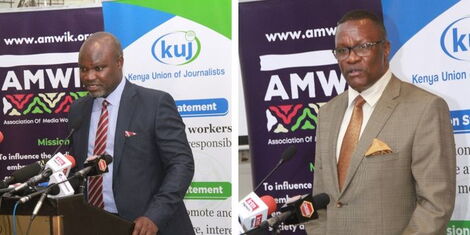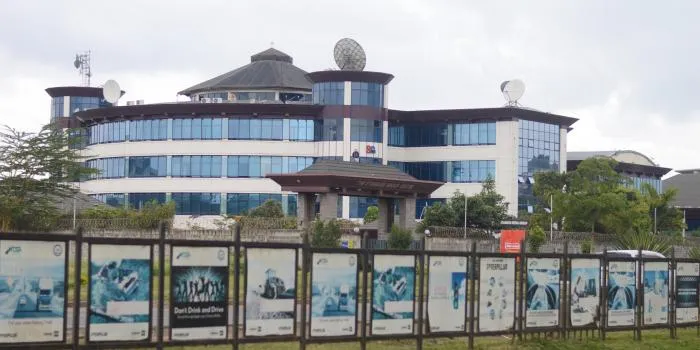-
The Standard Media Group Mombasa Road Offices . Thursday, October 14, 2019 SIMON KIRAGU /KENYANS.CO.KE
-
Journalist Moses Okiror Omusolo, who was attached to Standard Media Group, was on Wednesday, December 21, found dead in Kayole, Nairobi.
The body of the Journalist who writes for The Standard newspaper in the business section was found dumped along Kang'undo Road.
The circumstances under which the journalist who was allegedly killed remained unclear at the time of publishing, even as police officers from Kayole commence investigations into the incident.
Multiple reports showed that Omusolo's body was badly wounded on the sides and the head.
 A photo collage of Standard journalist Moses Okiror Omusolo whose body was found dumped along Kangundo Road on Wednesday, December 21, 2022. THE STANDARD
A photo collage of Standard journalist Moses Okiror Omusolo whose body was found dumped along Kangundo Road on Wednesday, December 21, 2022. THE STANDARDThe journalist's colleagues expressed their anger and sorrow at the loss of their friend which they described as sudden and unexpected.
"Omusolo was found dead yesterday night in Kayole with a deep cut in his head," his colleague, Xavier Ouma explained.
Reports indicated that Omusolo was killed while enroute to his home. The Standard Group PLC management was yet to release an official statement over the his abrupt death.
The Journalist's death came at a time when Kenyan journalists expressed concerns over constant threats to their lives.
Kenya Editors' Guild in October 2022 raised alarm over the high number of journalists who had been threatened, beaten or killed in the line of duty.
The organisation, therefore, asked the state to protect journalists who also faced serious economic challenges.
In response, ICT Cabinet Secretary Eliud Owalo who met Media Owners Association, promised to rally governmental agencies to support journalists and the local media houses.
Owalo asked media organisations to be pragmatic in their approach to revenue generation in order to improve the welfare of their staff.
 A collage photo of Kenya Editors Guild President Churchill Otieno (Left) and ICT Cabinet Secretary Eliud Owalo at the observation of the International Day to End Impunity against Journalists in Nairobi on November 2, 2022. By Mark Obar, Kenyans.co.ke
A collage photo of Kenya Editors Guild President Churchill Otieno (Left) and ICT Cabinet Secretary Eliud Owalo at the observation of the International Day to End Impunity against Journalists in Nairobi on November 2, 2022. By Mark Obar, Kenyans.co.ke






